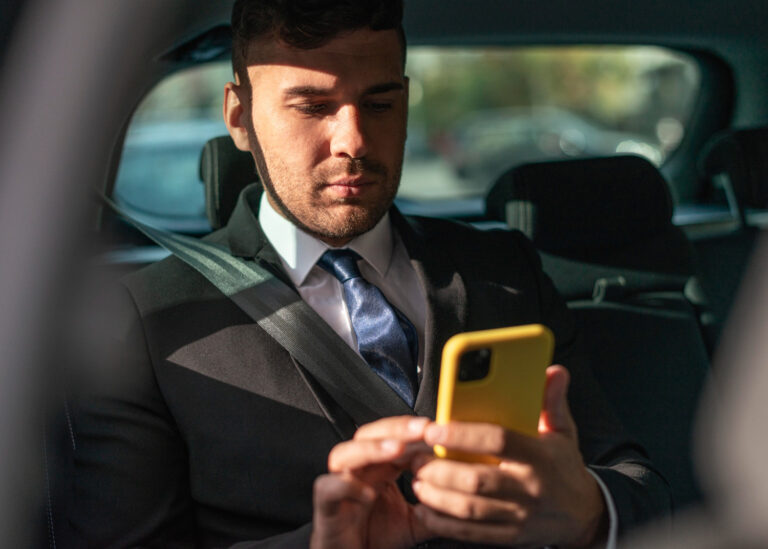
You’ve hit the road as an Uber driver in the UK, cruising through the bustling streets, racking up those fares, and making that cash flow. But hold on just a sec; a little something called taxes is lurking in the shadows, ready to take a bite out of your hard-earned dough. As an Uber driver, it’s essential to know how to claim for Uber driver expenses and tax deductions
Rolling into the Tax Game
First, let’s get one thing straight: taxes are unavoidable. They’re like that unexpected pothole on the road that jolts you awake. As an Uber driver in the UK, you’re considered self-employed, which means you’re responsible for your tax affairs. So, buckle up and let’s dive into the tax deduction process.
1. Mileage Deductions
You can claim for Uber driver mileage deductions to save money on your taxes. But did you know that every mile you drive for Uber is a golden ticket in the world of tax deductions? It’s like finding a pot of gold at the end of the rainbow.
The HMRC (that’s the tax folks, in case you didn’t know) allows you to deduct your business mileage from your income to calculate your taxable profit. You can choose between the standard mileage rate or the actual expenses method. The standard mileage rate is like the express lane on the tax highway – it’s quick and easy. The 2023/24 tax year is set at 45p per mile for the first 10,000 miles and 25p per mile after that. But if you feel like a tax detective and want to get nitty-gritty with your expenses, the actual expenses method might be your jam.
2. Expense Claims
Expenses, my friend, are your best buddies when it comes to reducing your tax bill. They are your trusty sidekicks, helping you keep more green in your pocket.
When you’re an Uber driver, there are a ton of expenses you can claim. Gas, car maintenance, insurance, and even those pesky cleaning fees for passengers who just can’t resist spilling their coffee – they all add up. Even the snacks and water bottles you provide for your riders are fair game!
Remember, you can’t just splurge on whatever you want and claim it as an expense. It has to be directly related to your Uber gig. So, no, that new leather jacket you bought because you look cool in it while driving won’t fly with the taxman.
3. Capital Allowances
Now, let’s talk about the fancy term “capital allowances.” It sounds all official and daunting, but the government says, “Hey, we’ll cut you some slack on your vehicle expenses.”
With capital allowances, you can claim a percentage of your vehicle’s cost as a tax deduction. This can be a real game-changer, especially if you’re driving an expensive car that doesn’t exactly sip on petrol like a teetotaler. The HMRC has a set of rates for different types of vehicles, so it’s worth checking out which category your ride falls into.
4. Tax Filing
You’ve tracked your miles, tallied up your expenses, and claimed your capital allowances. Now comes the moment of truth: paying your taxes. This is where you show the taxman that you’re no pushover.
You’ll need to complete a self-assessment tax return, a report card for your financial year. You’ll list your earnings, deductions, and any other sources of income you might have. The deadline for filing your tax return is usually in January after the end of the tax year. So, mark it on your calendar, set a reminder on your phone, or tie a string around your finger – just make sure you don’t miss it.
5. Tax Reduction
Nobody likes paying taxes, but here’s a little secret: there are legal ways to reduce your tax liability. It’s like dodging a bullet in slow motion – you see it coming and gracefully sidestep it.
One way to do this is by making contributions to a pension scheme. The money you put into your pension is tax-free, which means you’ll pay less tax on your earnings. It’s like stashing your cash in a secret vault where the taxman can’t touch it until you retire. Plus, it’s a smart move for your future self.
6. Record Keeping
I know record-keeping might not be the most exciting part of your Uber journey, but trust me, it’s essential. It’s like keeping a diary of your financial adventures – you don’t want to forget a single detail.
7. Professional Help
If all this tax stuff makes your head spin faster than a carousel, it might be time to call the cavalry. Hiring an accountant specialising in self-employed individuals like Uber drivers can be a game-changer. They’ll help you navigate the tax labyrinth, find every deduction available, and make sure you’re clear with the taxman. Seek professional help to ensure you claim for Uber driver deductions correctly. Visit worldmagazines for more interesting articles.